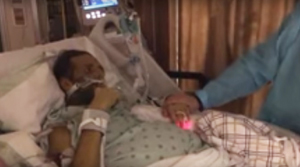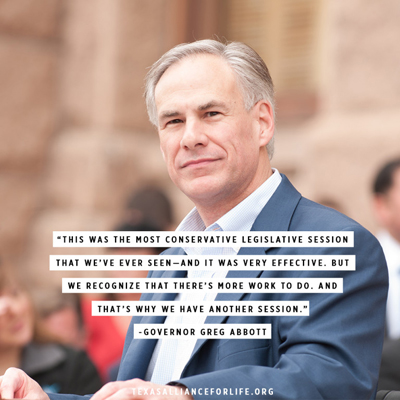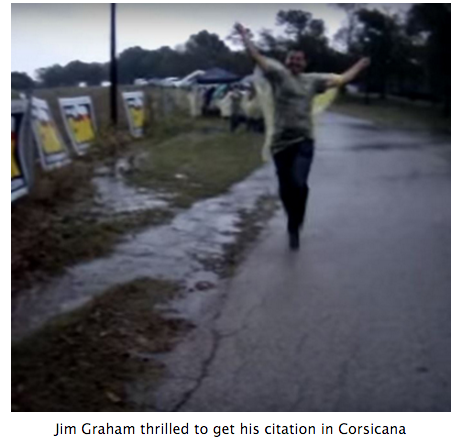Death, Lies and Video
 Supported only by his imagination, what he saw in videos produced by Texas Right to Life lawyers, and a news article, Dr. Phillip Hawley, Jr., M.D., wrote “A Tragic Case of Modern Bioethics; Denying Life-Sustaining Treatment to a Patient Who Wanted to Live” about the truly tragic, but inevitable death of Chris Dunn. Hawley erred by pretending to read the minds of doctors and hospital representatives and calling complete strangers “utilitarian” “murderers.” Before discussing the ethics of his accusations, it’s necessary to explain the meaning of the documented facts, available in news sources, blog posts and court records:
Supported only by his imagination, what he saw in videos produced by Texas Right to Life lawyers, and a news article, Dr. Phillip Hawley, Jr., M.D., wrote “A Tragic Case of Modern Bioethics; Denying Life-Sustaining Treatment to a Patient Who Wanted to Live” about the truly tragic, but inevitable death of Chris Dunn. Hawley erred by pretending to read the minds of doctors and hospital representatives and calling complete strangers “utilitarian” “murderers.” Before discussing the ethics of his accusations, it’s necessary to explain the meaning of the documented facts, available in news sources, blog posts and court records:
- Dunn was not “alert and cognizant” as he had documented delirium secondary to hepatic encephalopathy and over a month on the ventilator with sedation and pain meds.
- The hospital voluntarily, without a court judgement, promised to continue life-sustaining treatments in place until the legal guardianship question was settled.
- Food and water, legally termed as “Artificially Administered Nutrition and Hydration” or AANH and including total parenteral nutrition, cannot be removed against the objection of patients or surrogates, under Texas law.
- The doctors stated that they believed the “life-sustaining treatments,” were causing suffering.
- The hospital never sought guardianship for themselves, only for “a qualified family member,” and listed their names and locations in the original petition.
It is very unlikely that Chris understood his condition, the questions the lawyers were asking or the consequences of his “prayer.” That he was unable to make medical decisions is supported by the fact that his parents had been making his medical decisions. The Harris County judge agreed with the hospital’s request that a single legal guardian be named by a separate court.
“Life-sustaining treatment,” “medically inappropriate” and “Artificially Administered Nutrition and Hydration” are legal terms defined in the Texas Advance Directive Act (TADA), which outlines the exact procedure and language for communications between doctors, the hospital committee, and patients or their surrogates. The use, monitoring and adjustment of a mechanical ventilator is in the definition of “life-sustaining treatments.” TADA specifically excludes “Artificially Administered Nutrition and Hydration” (AANH) in the definition of “life sustaining treatments,” which would argue against the accusation that his doctors planned to withdraw “food and water.”
The only legal reason under TADA to remove any “life-sustaining treatment” is that it is deemed “medically inappropriate” by the attending physician and then only if the hospital medical or ethics committee “affirms” that decision. If and when they are withheld, the Act specifically prohibits “mercy killing” or otherwise intentionally intervening with the intent to cause death by artificial means.
Additional demands by Chris’ mother, Mrs. Kelly, and the lawyers in blogs and news articles would have also fallen under the legal definition of “life-sustaining treatment.” These demands included a biopsy in order to determine a definitive tissue diagnosis for the clinically apparent pancreatic cancer and liver lesions, a surgical tracheostomy and the removal of the ventilator (to be fair, I believe they meant the tube through the vocal chords), less sedation, searches for and trials of treatment of the cancer, and the non-standard use of an indwelling drain for the ascites (large exudates in the abdomen due to high pressures in the liver and the failure of the liver to make necessary proteins). These are invasive, potentially painful and, based on the reported size and effects of the mass, the extent of liver damage visibly evident in the videos as temporal wasting and copper-colored skin, ascites and the GI bleeding – they were very unlikely to lengthen his life, much less cure his cancer. In fact they could be very likely to hasten – or be the immediate cause of – his death. Chris died in the ICU on full life-sustaining treatments, including the ventilator and intravenous AANH.
The doctors are on record as basing their decision on the suffering caused by the treatments to their patient, Chris. This is consistent with the known side-effects of the ventilator and even reports from Chris’ mother, who told reporters that Chris suffered from the treatments and fluid building up in his lungs despite the ventilator. And yet, Dr. Hawley made sensational statements such as:
“For patients with terminal illnesses, this standard often leads to the utilitarian question: Is the patient’s life still worth living? “In Chris Dunn’s case, the committee’s answer was “no.” Relative strangers with little or no knowledge of his values and beliefs weighed his “quality of life” and decided that he no longer deserved to live.” And,
“. . . How did these committee members who had only recently met the patient—if they ever met him at all—know that it was in his best interest for them to end his life?” And,
“. . . But, somehow, we are to believe that these committee members were able to deduce existential truths about what was in Chris Dunn’s best interest?”
The physicians who cared for Mr. Dunn for over a month had certainly met him and members of the Methodist Hospital Biomedical Ethics Committee met with the family several times. Court documents are clear that the doctors believed the life-sustaining treatments were causing suffering and that the committee agreed that the treatments were medically inappropriate. There certainly is no evidence that the doctors or the committee members sought to intentionally “end” Chris’ life. “Medically inappropriate treatment” is not an “existential truth” and never in the patient’s best interest.
(Some may remind us that suffering can have benefits. However, Mr. Dunn couldn’t consent to suffering, much less benefit from the suffering, whether as a medical treatment or a willing religious self-sacrifice.)
Robert P. George is one of my heroes a conservative tenured professor of law and ethics at Princeton and one of the founders of the Witherspoon Institute, an organization known for its defense of Judeo-Christian ethics based on natural law, and the parent organization of Public Discourse. He has helpfully outlined a “key” to evaluate the withholding or withdrawing of life-sustaining care:
“[T]he key is the distinction between what traditionally has been called “direct killing,” where death (one’s own or someone else’s) is sought either as an end in itself or as a means to some other end, and accepting death or the shortening of life as a foreseen side effect of an action or omission whose object is something other than death—either some good that cannot be achieved or some evil that cannot be avoided without resulting in death or the shortening of life.”
George and Hawley each point to a value in medicine that is higher than autonomy or even preserving life at all costs: the duty of physicians to care for the patient. “Cure when possible, but first, do no harm.”
The lawyers didn’t just sue to maintain “life-sustaining treatments,” or even Mrs. Kelly’s right to force the doctors to treat Chris the way she wanted them to. The lawsuit, blog posts and public statements document the ultimate goal to have TADA declared unconstitutional and to force all doctors to give patients and surrogates the right to demand any and all desired treatment indefinitely. The power of State courts, law enforcement and licensing would be used to force Texas doctors to carry out acts against our medical judgment, education, experience and conscience.
What justification can the lawyers and Dr. Hawley give for not believing the physicians who care for patients daily and hourly when those caretakers document that the patient is suffering?
What kind of physicians will we end up with if the State can force us to act without judgement or conscience?
What kind of State would we have?
Based on a video and his imagined conversations between “malevolent” and “utilitarian” doctors and hospitals, Hawley declares Texas a “morally impoverished society.” Ignoring sworn statements from the physicians and misrepresenting TADA, he distorts the purpose of the Texas Advance Directive Act, which is to address the problems encountered when patients and surrogates disagree., Only by assuming evil intent is he able to force doctors to prove a negative and distract from any possibility of a conflict between the equal and inalienable rights of the patient and the doctor.
While the video of Chris apparently praying to be allowed to live wrenched at our emotions, it was used to tell a false story upon which Dr. Hawley built his harmful assumptions. We would all do well to remember my Mama’s advice: Don’t believe anything you hear and only half of what you see.”








